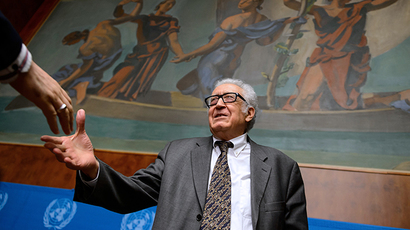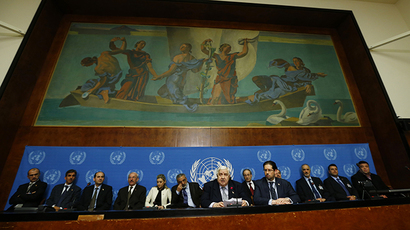Saudi Arabia to supply Syrian rebels with anti-aircraft missiles – report
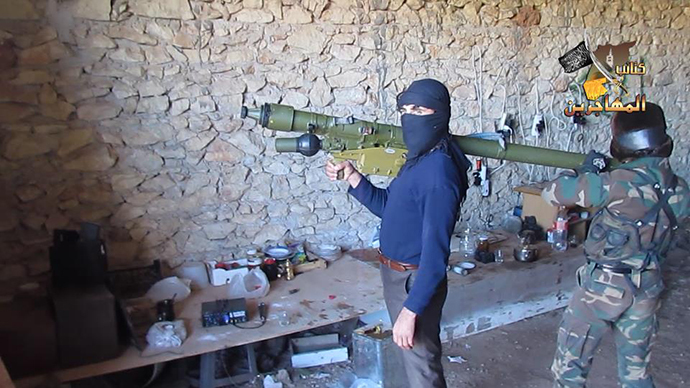
Frustrated by the deadlock of the second round of Geneva 2 talks, Saudi Arabia has reportedly offered to supply the rebels with anti-aircraft missiles. Meanwhile Russia has accused the US of once again hijacking peace talks and pushing for regime change.
According to a report by the Wall Street Journal, Russian-made
antitank guided missiles and Chinese man-portable air-defense
systems are up for grabs, already waiting in warehouses in Jordan
and Turkey.
An Arab diplomat and several opposition figures with knowledge of
the Saudi efforts have told WSJ that these supplies are likely to
tip the battlefield scales, as the rebels will become capable of
taking on the government’s air power and destroying heavy armored
vehicles.
“New stuff is arriving imminently,” a Western diplomat
with knowledge of the planned weapons deliveries told the
American publication.
Leaders of the Syrian opposition said they don't yet know the
total amount of military aid that will be shipped. The new
weapons are expected to reach southern Syria from Jordan while
the opposition in the north will get arms from Turkey, the
Western diplomat said.
Raising fears that civilian aircraft may eventually become
targets, last June several media outlets suggested that Saudi
Arabia had already begun supplying anti-aircraft launchers and
missiles to militants in Syria. But so far Saudi Arabia, as well
as the US, has been officially opposed to arming the rebels with
big guns and antiaircraft missiles as they could fall into
extremist hands.
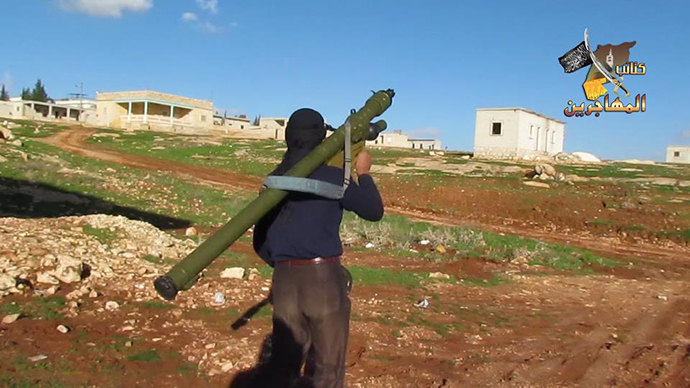
According to the WSJ report, rebel commanders struck a deal on the new armaments shipment during a meeting with US and Saudi intelligence agents in Jordan on January 30. During that meeting, rebels allegedly claimed that their new military gains would help force official Damascus consider President Assad’s ouster and bring forward a political solution to the conflict.
Mercenaries on US payroll?
The Wall Street Journal also reports that their rebel sources
claimed the US government is paying their salaries to fight the
Assad forces. The Southern Front brigades allegedly received $3
million in cash in salaries during the two meetings in Jordan,
one held on January 30 and the other late last year.
Meanwhile, congressional aides told the WSJ about scheduled
meetings with Syrian opposition leaders next week. The Syrian
delegation will allegedly seek extra armaments in order to battle
al-Qaeda and al-Nusra elements.
“We're trying to assure the international community that they
can support moderates without the threat of arms falling into the
hands of al-Qaeda,” said Oubai Shahbandar, a senior adviser
to the Syrian opposition. Saudi Arabia and US have so far refused
to comment.
Geneva 2 stalemate
As the second round of Geneva 2 talks so far fails to produce any
results, the Russian Foreign Minister has criticized the American
stance at the negotiations accusing it of hijacking the talks for
the purpose of “regime change” in Syria.
“The only thing they want to talk about is the establishment
of a transitional governing body,” Sergey Lavrov said Friday
after meeting with the German foreign minister in Moscow.
“Only after that are they ready to discuss the urgent and
most pressing problems, like terrorism.”
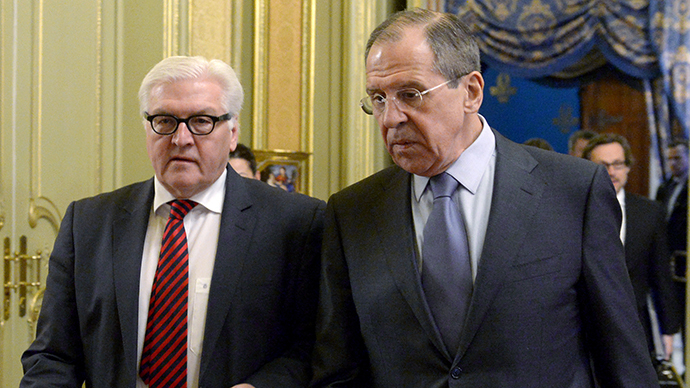
“I am very worried about the systematic attempts to disrupt
the political settlement in Syria,” therefore “forcing
the (Syrian) government to slam the door.”
Lavrov recalled that talks were kick started to implement the
original Geneva communique, position of which Russia and Syria
solemnly defend. The June 2012 document stipulates the creation
of a transitional political body, holding of free and fair
elections, the start of a national dialogue, a review of the
constitution and legal system. Nowhere does it mention removal of
president Assad.
“Now they are saying that to keep talking is senseless, because
the government (of Syria) doesn't want to agree about the makeup
of a transitional governing body. We are going in circles,”
Lavrov said.
The Syrian government’s position remains that stopping terrorism
and bloodshed should be the priority at the negotiations that
started last month. The second round of negotiations between
government and opposition representatives began on Monday but no
progress has yet been made. The opposition, backed by the US and
its allies, insists on forming a transitional authority with
“full executive powers,” thus ousting Assad.
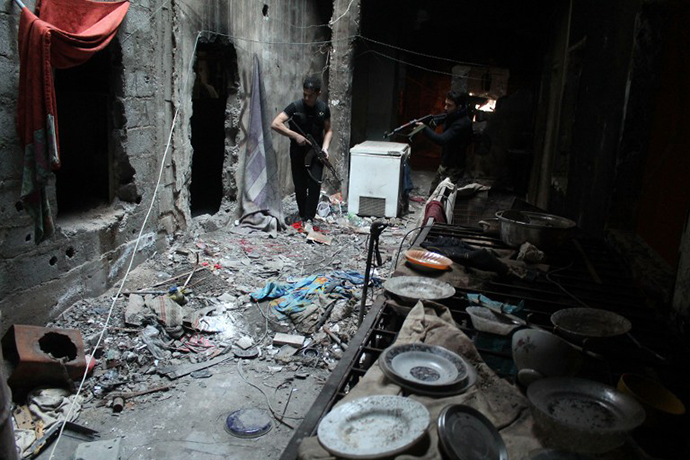
After five days of negotiations the opposition has accused the
government's team of “belligerence,” while the
government delegation said that the opposition have an
“unrealistic agenda.”
“The negotiations are not moving toward a political
solution,” said Louay Safi, a spokesman for the Syrian
opposition delegation, accusing the government side of adopting a
hostile stance.
“I deeply regret to say that this round did not achieve any
progress,” Syrian Deputy Foreign Minister Faisal Mekdad
said. “We came to the Geneva conference to implement Syria's
declared position to reach a political solution. ...
Unfortunately the other side came with another agenda, with an
unrealistic agenda."
The UN’s Lakhdar Brahimi, curator of the talks, plans to meet the
sides on Saturday, the final day for round two of the
negotiations, but it remains unclear if he can offer any prospect
of drawing the warring parties closer together.













